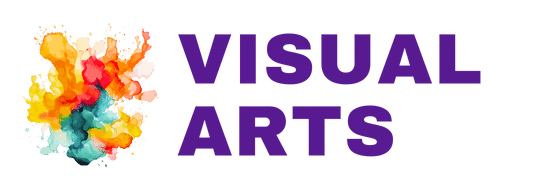What is Artistic Development?
Artistic development refers to the growth and progression of an individual’s artistic skills, creativity, and expression over time. It encompasses the evolution of an artist’s style, technique, and understanding of their craft.
Artistic development is a lifelong process that can be influenced by a variety of factors, including personal experiences, education, exposure to different artistic styles, and mentorship.
Stages of Artistic Development
Artistic development can be broken down into several stages, each characterized by specific milestones and challenges. These stages may vary depending on the individual and their chosen artistic medium, but generally include the following:
1. Exploration: In this stage, artists experiment with different techniques, styles, and mediums to discover their interests and strengths.
2. Skill-building: Artists focus on honing their technical skills and mastering the fundamentals of their chosen art form.
3. Personal style development: Artists begin to develop their own unique artistic voice and style, incorporating their personal experiences and perspectives into their work.
4. Mastery: Artists reach a level of proficiency where they are able to create complex, nuanced works that showcase their expertise and creativity.
Factors Influencing Artistic Development
Several factors can influence an individual’s artistic development, including:
1. Personal experiences: Life experiences, emotions, and beliefs can all shape an artist’s perspective and influence the themes and subjects they explore in their work.
2. Education: Formal education, workshops, and mentorship can provide artists with the knowledge and skills needed to grow and develop their artistic practice.
3. Exposure to different artistic styles: Exposure to a variety of artistic styles and movements can inspire artists to experiment with new techniques and approaches in their own work.
4. Supportive environment: A supportive and nurturing environment, whether through family, friends, or a creative community, can encourage artists to take risks and push the boundaries of their creativity.
Techniques for Fostering Artistic Development
There are several techniques that can help foster artistic development and support artists in their creative journey, including:
1. Practice: Regular practice is essential for improving artistic skills and developing a personal style. Artists should set aside dedicated time for creating art and experimenting with new techniques.
2. Experimentation: Artists should not be afraid to try new things and step out of their comfort zone. Experimenting with different mediums, styles, and approaches can help artists discover new ways of expressing themselves.
3. Seeking feedback: Constructive feedback from peers, mentors, and art professionals can provide valuable insights and help artists identify areas for growth and improvement.
4. Continued learning: Artists should never stop learning and seeking out new opportunities for growth. Taking classes, attending workshops, and studying the work of other artists can all contribute to artistic development.
Assessing Artistic Development
Assessing artistic development can be a subjective process, as artistic growth is often difficult to quantify. However, there are several ways to evaluate an artist’s progress, including:
1. Portfolio review: Reviewing an artist’s portfolio over time can provide insight into their growth and evolution as an artist. Look for changes in style, technique, and subject matter.
2. Peer evaluation: Seeking feedback from peers and other artists can help artists gain a different perspective on their work and identify areas for improvement.
3. Self-reflection: Artists should regularly reflect on their own work and artistic journey, considering what they have learned, where they have improved, and what they still hope to achieve.
Resources for Supporting Artistic Development
There are a variety of resources available to support artists in their artistic development, including:
1. Art classes and workshops: Taking classes and workshops can provide artists with the opportunity to learn new techniques, receive feedback from instructors, and connect with other artists.
2. Artist residencies: Artist residencies offer artists the chance to focus on their work in a supportive and inspiring environment, away from the distractions of daily life.
3. Mentorship programs: Working with a mentor can provide artists with guidance, support, and valuable insights into the artistic process.
4. Online communities: Online forums, social media groups, and artist websites can connect artists with a global community of creatives, providing opportunities for feedback, collaboration, and inspiration.
